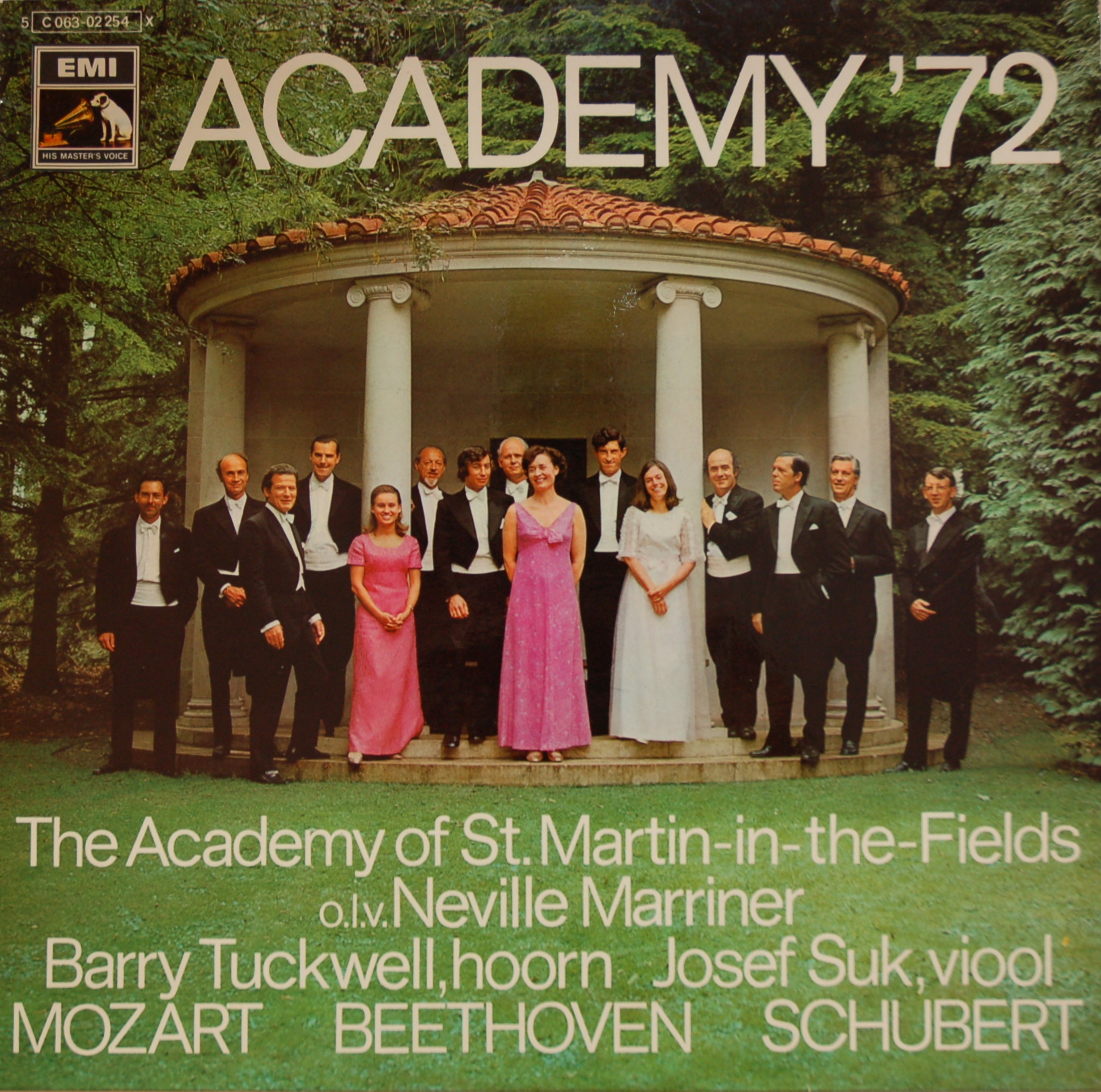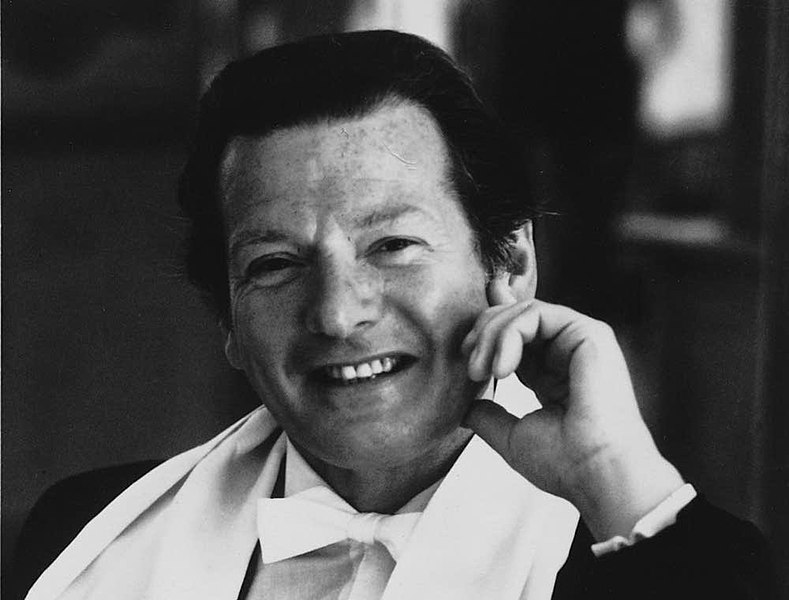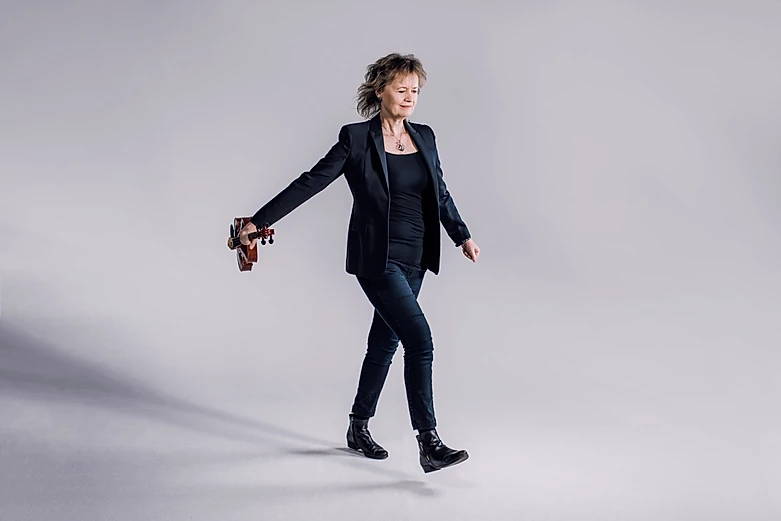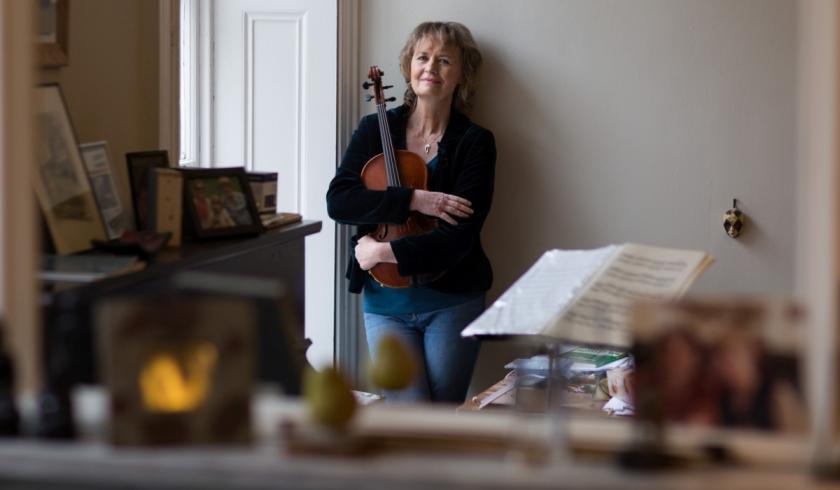I was 13. It was a Saturday, and Mum was working. On this occasion she asked if I’d like to come along and bring a book. I was wearing a dress I’d made myself – psychedelic orange and pink, with red edging. It was 1969. I don’t remember what the book was, but I know I didn’t look at it once that day.
The Kingsway Hall was set up for a group of 15 or so musicians, with a harpsichord at the centre. Mum was in the second violins. I was welcomed by her friends, who asked how the music lessons were going. The elegant, charming and charismatic man called Neville made me especially welcome, with lots of banter which made me giggle and blush. Happy to retire to the background, I sat transfixed as they began to record. I noticed the harpsichordist was struggling with page turns – the rustling spoilt several takes. There was much discussion. Suddenly I was shocked to hear Neville’s commanding voice "Sally! You can turn the pages!" I stood trembling by the harpsichord as they started the next take. In spite of the shaking of my hand, the pages turned without incident, and the take was a success. I remember basking in my small triumph, and soaking up the atmosphere of that unforgettable afternoon: the banter, the camaraderie, my mother in her element – valued, fulfilled, and clearly popular. In a world where women had only recently been accepted to play in symphony orchestras, Neville was way ahead of his time in selecting an unusually high proportion of female players. One album cover was dubbed "Ursula’s Wedding" because my mother was standing at the centre, with violinist Richard Studt at her side in his tails, and the more petite Carmel Caine and Galina Solodchin on either side, looking for all the world like bridesmaids (pictured above).
In a world where women had only recently been accepted to play in symphony orchestras, Neville was way ahead of his time in selecting an unusually high proportion of female players. One album cover was dubbed "Ursula’s Wedding" because my mother was standing at the centre, with violinist Richard Studt at her side in his tails, and the more petite Carmel Caine and Galina Solodchin on either side, looking for all the world like bridesmaids (pictured above).
Mum had recounted to me the experience of her first rehearsal with the Academy, a couple of years earlier. She’d been sitting at the back of the second violins, and had made a comment under her breath, when a point of phrasing was being discussed. Instantly Neville had held up his hand and barked "What was that, Ursula?" She thought she was going to be reprimanded, but in fact he simply wanted to know what she had said. He wanted to know, because it was important to gather all available input from every player. Neville only cared about the end result. He surrounded himself with musicians he respected. I recognised then, and experienced first hand 15 years later, that to play with the Academy was to be an important cog in the wheel, in an environment within which one’s own musicianship could flourish.
In 1985, I decided to audition for the Academy on viola. I was thrilled to be accepted, and was invited to play with increasing regularity. Most of the work consisted of recording sessions and tours. The young Joshua Bell playing Bruch at Abbey Road studios. The Haydn trumpet concerto with 18-year-old Håkan Hardenberger, for whom I wrote a concerto 20 years later. Connections I made within the orchestra bore fruit in the form of small commissions, including the Capriccio I wrote for bassoonist Graham Sheen, and a piano quartet for Ken Sillito and Academy members.
To play under Neville (pictured below in 1982) was to know that every detail of one’s playing was under scrutiny. An unusual fingering would lead to a raised eyebrow – a slight nuance of phrasing would cause him to stop, nod in acknowledgement, and suggest the idea to the orchestra. He was a hawk-like figure on the podium, missing nothing. This was stimulating and alarming in equal measure.  Recording with the orchestra was a constant reminder of Neville’s pride in his players. He encouraged us all to pile into the producer’s box between takes, and welcomed – sought – comments from us all. And one could never be sure that Neville wouldn’t suddenly ask for a solo to be played by a rank and file player. He liked to show off to the record companies that all his players were soloists – that he could pick on any of them, with the red light on, and they would deliver. Terrifying times.
Recording with the orchestra was a constant reminder of Neville’s pride in his players. He encouraged us all to pile into the producer’s box between takes, and welcomed – sought – comments from us all. And one could never be sure that Neville wouldn’t suddenly ask for a solo to be played by a rank and file player. He liked to show off to the record companies that all his players were soloists – that he could pick on any of them, with the red light on, and they would deliver. Terrifying times.
Neville, always interested in the lives of his players, discovered that I was composing, and asked to hear something. This was around the time of my first substantial composition, "No, I’m Not Afraid" – a setting of poems by Irina Ratushinskaya. I sent him a cassette.
One year later I had a card from him.
My dear Sally, I have just listened to your remarkable work, and wish now I had listened sooner. Should you ever decide you would like to write a piece for us, I would be delighted for us to perform it.
I knew instinctively it was too soon – as I had never written for orchestra. But it was an important affirmation of my decision to move to Scotland and focus on composing. Although he was supportive of my aspirations, Neville was less enthusiastic about the move. He grumbled about me leaving the Academy, and when it came to my last tour, in Germany in 1989, he theatrically offered me the bouquet that had been presented to him onstage, and asked me not to go.
A few years later, now settled in Scotland, and with a bit more experience under my belt, I reminded him of his suggestion that I could write for the Academy. He was true to his word. He asked me to write a celebratory piece for the Academy’s 35th anniversary concert in 1994 at the Royal Festival Hall, and I composed Walking Back – a reference to my great-great-grandfather having walked to London from Edinburgh to seek his fortune, and my own arrival in Scotland in 1990, with a strong sense that I had family roots there. As well as celebrating the Academy, it expressed the joy of motherhood; and included a lullaby for the strings [Sally Beamish pictured below by Mihaela Bodlovic, courtesy Sound Festival).  In 1997 cellist Robert Cohen invited me to write a cello concerto. Neville agreed to commission it, and conducted it at the Barbican. And in 2013 the Academy commissioned Variations on a Theme of Benjamin Britten, for strings – a celebration of the centenary of Britten’s birth, which is dedicated to Neville.
In 1997 cellist Robert Cohen invited me to write a cello concerto. Neville agreed to commission it, and conducted it at the Barbican. And in 2013 the Academy commissioned Variations on a Theme of Benjamin Britten, for strings – a celebration of the centenary of Britten’s birth, which is dedicated to Neville.
The invitation in 2015 to become the Academy’s first "Composer in Residence" was fantastically exciting. It’s inspiring for a composer to write for players she knows well – and my connection with the Academy made it an especially exciting prospect.
I met with Neville late in 2015. He was furious with himself, having just completed a taxing tour of China without incident, only to break his ankle on his return home. He was laid up in bed, and delighted to be distracted by a discussion about my forthcoming residency. I gave him a signed score of the Variations, and we talked about the orchestra, and about what I might write.
We decided on an orchestral piece, and a string octet.
By the time I started writing the orchestral piece, in 2018, life was unimaginably different. Neville had died suddenly only months after I saw him. I had met Peter, who was to become my husband, and made the decision to return to England – and while I was filled with joyful anticipation, it was hard to leave the country that had been my home for nearly half my life. In particular, I felt torn by the separation from my adult Scottish children, even though this was for me a home-coming.
I had a sense of being suspended, and rootless, and Peter suggested the poem The Windhover by Gerald Manley Hopkins, as a starting point for the piece. I imagined Hopkins’ falcon hovering somewhere over the Midlands – half way between Glasgow and Brighton. I was in a limbo, and unsure where "home" really was. To raise a family in a different country is to feel unsettled forever.
During 2018 several of my works expressed a sense of loss on leaving Scotland, and one of these featured a lullaby.
This lullaby, expanded and developed, forms the central section of Hover. It is for viola, my own instrument, and is a reflection on loss; the inevitable loss of the mother’s role when children are grown and she is no longer needed in the same way.
In many ways Walking Back and Hover form parentheses, which enclose my Scottish life and family. Walking Back was about the joy of new motherhood. Hover is about letting go.
The process of composing Hover was fraught with challenges – we were staying with various friends while renovating our Brighton house. I had to find quiet corners to work, and my mood was unsettled and anxious. Try as I might to include some upbeat, contrasted music, Hover remained an elegy. I tried putting in a fast section. I tried putting in a dramatic section. I took them out again. The music remained ethereal and suspended, as if it would not be pinned down. Hover is infused with melancholy and yearning; with nostalgia for my life in Scotland, and with the loss of Neville.
Two things struck me after I had finished the piece. Although the fragment on which the lullaby is based is taken from a Burns song, I found that the Scottish, pentatonic flavour had gone. I had been unaware that the orchestration of the lullaby had become suffused with an "Englishness". Perhaps there is even a flavour of Neville’s beloved "Danny Boy", arranged by Percy Grainger, which he would bring out as an encore when he felt the audience deserved it. The second surprise was a card from Molly. She wrote:
The second surprise was a card from Molly. She wrote:
I am so very happy about your inspiration for Neville’s piece, such a beautiful poem, so suitable. I found this card [pictured left] just after Neville died and that’s exactly how I felt about his sudden going – Birds are always free.
I had been visualising a falcon – a graceful, powerful, focused bird. I realised that in fact the piece was not just in memory of Neville – it was about him.
Hover, then, is a piece with many layers. It is about loss, about rootlessness, and also about freedom and focus.
However, the Octet, written in 2019, is a true celebration – a Partita which gives every player a virtuosic role. Non-programmatic, it takes the Baroque framework: a prelude and fugue, followed by a chaconne which gives every member of the ensemble their moment in the sun. It feels grounded, which I think reflects the embracing of my new life. And it’s also grounded in tradition; drawing on Bach, on Handel, on Mendelssohn. I like to think that Neville would have enjoyed seeing his treasured musicians showcased in this way.
We cannot, as composers, always control where a piece of music comes from, or where it takes us. An elegy for times past. A celebration of musicians’ skill, and of new beginnings. Both have arisen from my residency with this very special orchestra that has been part of my life for over 50 years.
- The Academy of St Martin in the Fields celebrates its 60th anniversary at the Queen Elizabeth Hall tonight and at West Road Concert Hall, Cambridge on Thursday 14 November as part of the Cambridge Music Festival
- More celebratory season details on the Academy's website
- More classical music reviews on theartsdesk














Add comment